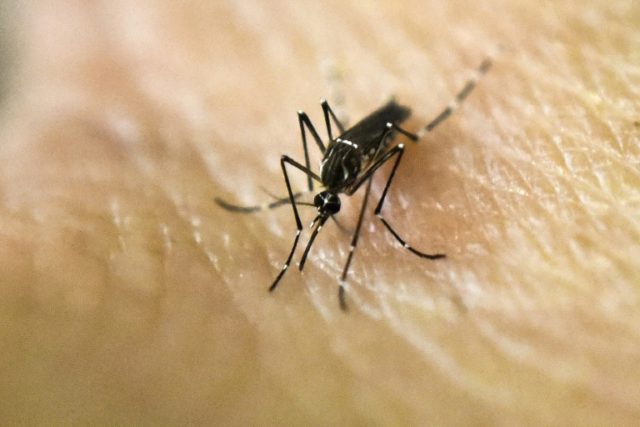-
Tips for becoming a good boxer - November 6, 2020
-
7 expert tips for making your hens night a memorable one - November 6, 2020
-
5 reasons to host your Christmas party on a cruise boat - November 6, 2020
-
What to do when you’re charged with a crime - November 6, 2020
-
Should you get one or multiple dogs? Here’s all you need to know - November 3, 2020
-
A Guide: How to Build Your Very Own Magic Mirror - February 14, 2019
-
Our Top Inspirational Baseball Stars - November 24, 2018
-
Five Tech Tools That Will Help You Turn Your Blog into a Business - November 24, 2018
-
How to Indulge on Vacation without Expanding Your Waist - November 9, 2018
-
5 Strategies for Businesses to Appeal to Today’s Increasingly Mobile-Crazed Customers - November 9, 2018
Zika strain from Americas outbreak spreads in Africa for first time
All countries in the region are at risk for the virus’s transmission since the Aedes aegypti mosquito is endemic and flourishing in numerous continent’s cities where poor water storage and drainage conditions provide ample opportunities for breeding.
Advertisement
Africa appears to be the next continent to feel the effects of the strain of Zika virus that’s been circulating around the Americas.
As a first step, these countries should heighten risk communication to pregnant women to raise awareness of complications associated with the Asian type of Zika virus and promote protection steps to avoid mosquito bites as well as sexual transmission.
Zika can also be spread sexually, and World Health Organization has said that pregnant women should abstain from sex or practice safe sex with anyone who has recently returned from areas with outbreaks.
Earlier this year, the Federal Ministry of Health in Nigeria issued a travel restriction to Latin America, especially by pregnant women until the Zika Virus outbreak situation improves.
Health officials say they have confirmed that the Zika virus in Cape Verde island off the western coast of Africa is the same one infecting people in the Americas.
As of 8 May, there had been 7,557 suspected cases in Cape Verde, an Atlantic archipelago which is around 350 miles (570km) west of Senegal and which has historic ties to Brazil.
“This is the first time that the Zika strain responsible for the outbreaks linked to neurological disorders and microcepaly has been detected in Africa”, Matshidiso Moeti, WHO’s Africa regional chief, told reporters in Geneva.
She said the information would help African countries to re-evaluate their level of risk and adapt and increase their levels of preparedness.
The WHO has said there is strong scientific consensus that Zika can also cause Guillain-Barré syndrome, a rare neurological condition that causes temporary paralysis in adults.
No cases of Guillain-Barre Syndrome have been registered in the country so far. That Asian type is the one that made its way to Brazil in 2015.
Advertisement
Most infected people suffer no symptoms but authorities in Brazil have seen a dramatic increase in severe brain-related birth defects in babies born to women infected with Zika during pregnancy.





























